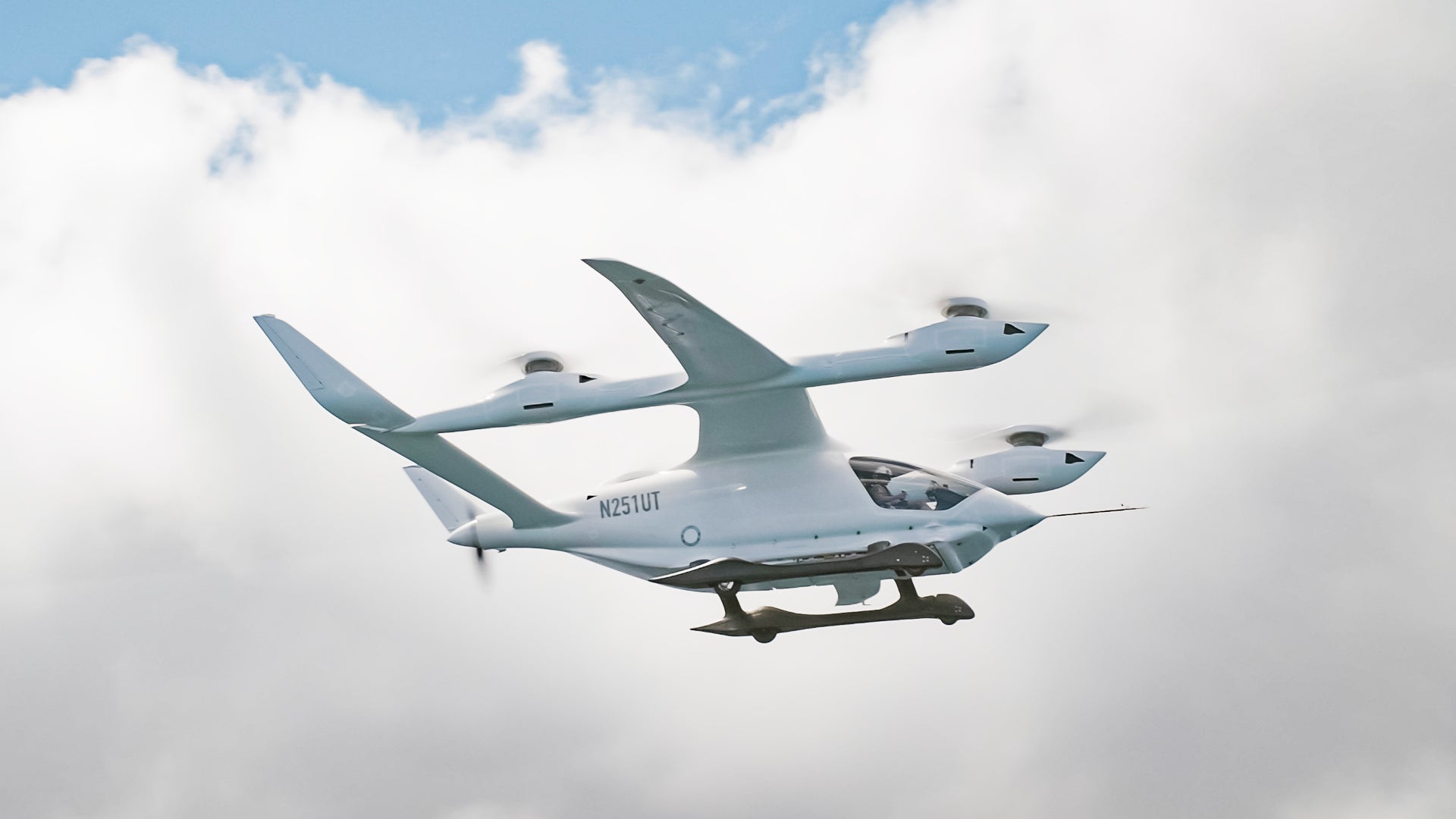Electric vertical takeoff and landing (eVTOL) aircraft manufacturer Beta Technologies this week achieved a milestone few eVTOL companies have reached.
The company on Tuesday said it completed a crewed, full transition flight of its Alia-250 (A250) eVTOL, shifting from vertical lift to forward cruise on fixed wings during the same flight. The model is one of two aircraft the firm is looking to commercialize in the coming years, along with a conventional takeoff and landing (eCTOL) Alia variant. Over four years of flight testing, Beta says its aircraft together have now logged more than 40,000 nautical miles.
Beta competitor Joby Aviation has also completed a crewed transition flight, putting a U.S. Air Force pilot at the helm in 2023. It claims to be the first to achieve the milestone. However, Beta’s flight is believed to be the first to include an out and back. Another competitor, Archer Aviation, said in January it is progressing toward a full wing-borne transition flight after it completed the first phase of its own flight campaign with the Air Force.
Like all of Beta’s test flights to date, the transition flight at the company’s flight test facility in Plattsburgh, New York, was crewed. Alia was piloted by Nate Moyer, a former Air Force experimental test pilot. The transition took place a few feet above the runway, with the aircraft relying solely on its fixed wings for cruise. Vertical propellers got the aircraft off the ground but remained stationary during forward flight.
According to Beta, the transition flight will provide key data the manufacturer will use to validate its design choices, as it works to type certify its eVTOL with the FAA. The eCTOL variant of Alia is expected to be given the all-clear about one year before then. But the company intends to conduct more crewed eVTOL transitions in the coming months.
The runway-independent aircraft will first be deployed by the U.S. military. Beta in January wrapped up its first eCTOL deployment for the Air Force and has delivered both aircraft and electric chargers to Eglin Air Force Base (KVPS) in Florida for Air Force testing.
The manufacturer also continues to collaborate with AFWERX, the innovation arm of the Air Force with which it has worked since 2020. Together, Beta and AFWERX in 2022 conducted the first airman flight of an electric aircraft.
Beyond the military, Beta expects its eVTOL to be used by cargo carriers and passenger-carrying operators. It has electrification partnerships with U.S. FBOs Atlantic Aviation and Shoreline Aviation to install charging stations for eVTOL and eCTOL service at FBO terminals from coast to coast.
As of March, the company has installed chargers at 19 locations, with a further 50 in the permitting or construction process. The systems are designed to accommodate both of Beta’s flagship models, but also those of its competitors.
Beta’s eVTOL customers include the United Postal Service, LCI, Blade Air Mobility, and Canada’s Helijet. Air New Zealand, meanwhile, has opted for the eCTOL Alia variant. Customers United Therapeutics and Bristow Group are looking to introduce both aircraft.
Like this story? We think you’ll also like the Future of FLYING newsletter sent every Thursday afternoon. Sign up now.
